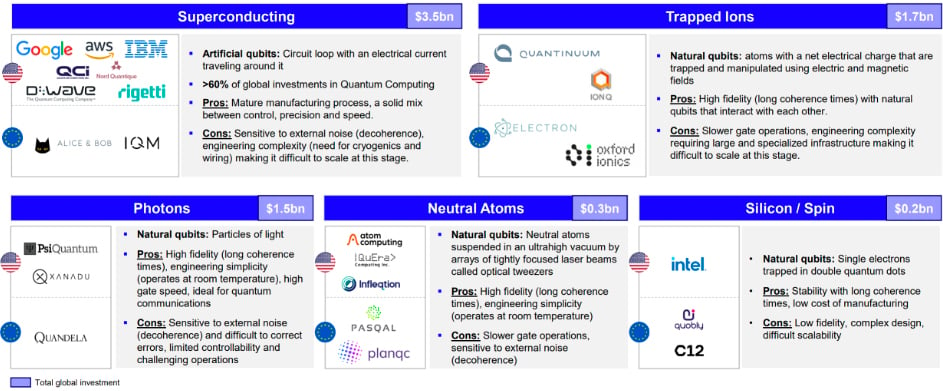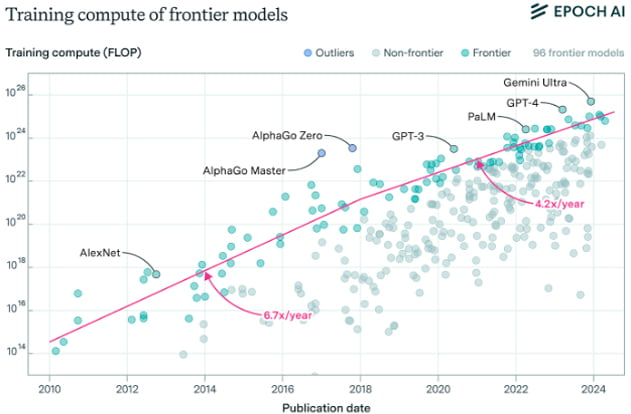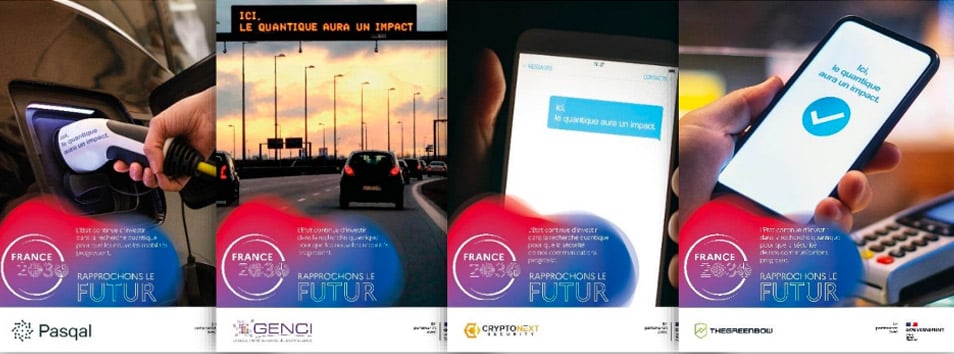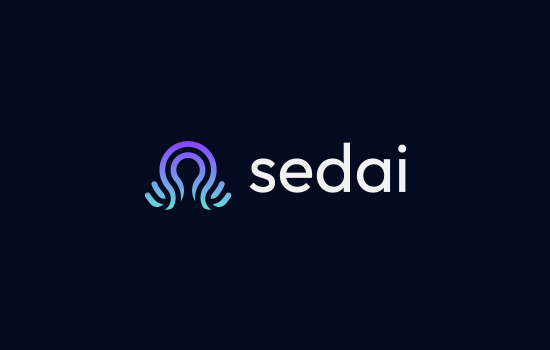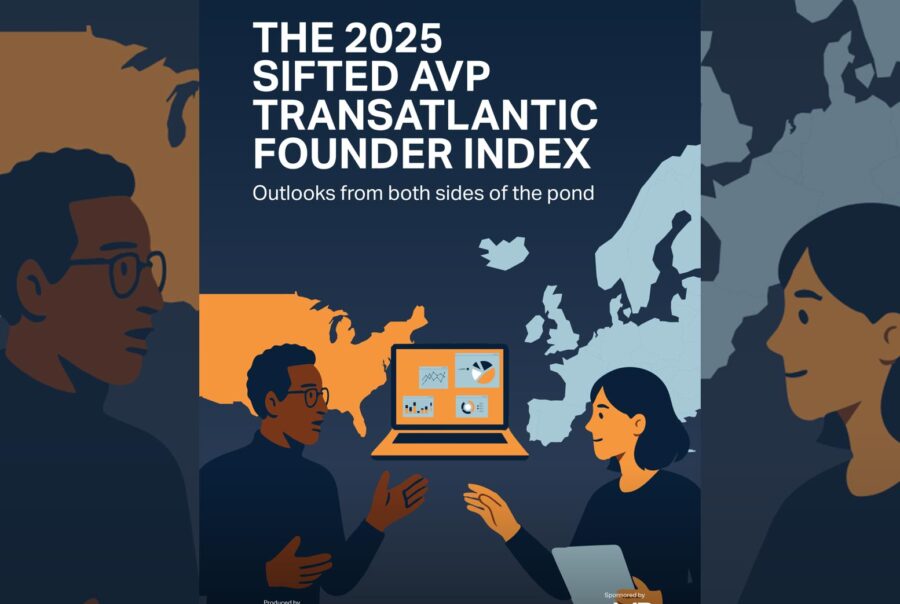
Arthur Brasseur
Investor
Introduction
AI is everywhere and has become a regular part of our lives now, whether we like it or not. But just when we thought AI was the ultimate innovation, Quantum AI will come soon.
AI is all about mimicking human abilities like reasoning, learning, and creativity. On the other side, Quantum is on a mission to deliver exponential computing power that can open doors to many realworld applications – from life sciences to finance, energy to chemicals.
To put it simply: AI brings the brain, while Quantum Computing brings the brawn. Together, they form a dream team that could revolutionize industries and unlock new opportunities and major economic prospects. Imagine granting a genius with a superpower to process immense datasets, recognize complex patterns and make predictions at record speed and unprecedented accuracy.
To which extent these two technologies can benefit from each other and for which concrete use cases?
In order to explore these questions, this whitepaper is divided into three parts:
- Quantum Computing: A prophecy to be fulfilled
- A synergistic relationship: How both technologies amplify each other
- Turning theory into action: Exploration of real-world use cases
I - Quantum Computing: A prophecy to be fulfilled
Quantum isn’t exactly a new idea.
Physicists have been dreaming of Quantum Computing since the 1980s, when Richard Feynman realized only quantum mechanics could truly simulate nature and solve related problems. But the real buzz did not start until the 1990s, when Peter Shor came up with his famous quantum algorithm that could factor numbers, putting classic encryption systems and data at risk. This breakthrough got the attention of tech companies worldwide, who suddenly saw the possibility of turning these long-time sci-fi dreams into actual working machines.
Simulating nature and its exponential complexity, correlated to the number of quantum particles (atoms and electrons) involved, is, to say the least, no easy task. Today, our classical computing model break information into basic units called ‘bits,’ which can each be either 0 or 1. They then use operations, or ‘gates,’ to process these bits. The issue here is that simulating quantum systems or factoring large numbers needs an unmanageable number of traditional CPUs to be processed in a reasonable time.
The good news? We can solve this problem by thinking about computing in a whole new way. Instead of sticking with the old methods, we can use quantum bits and quantum gates, based on principles of quantum physics like superposition and entanglement. By reducing the number of gates needed, quantum computers can beat classical computers, solving complex problems more efficiently and reaching a so-called “quantum advantage”.
A large bunch of algorithms have already been designed by research (quantum systems simulation, optimization, linear algebra, ML, factorization, etc) and could solve massive industrial problems: drug discovery, materials science, chemistry, biology, etc. According to BCG and McKinsey, we are talking about the potential unlock of an economic value comprised between $850bn and $2tn by 2035!
While the goal is clear and promising, the road to get there is quite bumpy with challenges. Even though some quantum computers claim to work with hundreds if not thousands of qubits, quantum advantage has still not been demonstrated. How come?
Unfortunately, today’s best quantum hardware can only execute a few thousand gates before interference between qubits and their environment causes the output to become random noise, losing the information it carries. This phenomenon, so-called “decoherence”, needs to be overcome to make quantum computers useful and scalable.
In light of this, we can already see a shift in the market from quantum players that started with a noisy Intermediate-Scale Quantum (NISQ) approach to a Fault Tolerant Quantum Computer (FTQC) approach. While NISQ computers made significant progress in hardware quality and algorithm design, only error correction leading to fault tolerance and “logical qubits” can make Quantum Computing useful and truly competitive. In December 2024, this was acknowledged by Google in the paper “Quantum error correction below the surface code threshold” published in Nature on their latest superconducting quantum processors Willow. The conclusion is clear: to achieve the potential of quantum computing, performance needs to be improved dramatically and only a fault tolerance approach can do it. This is also the path our portfolio company Alice & Bob decided to follow from day 1 back in 2020: their whitepaper on error correction and their roadmap “Thinking Inside The Box” is a must-read!
Zooming out: what are the main technologies that have been developed so far and who are the main players on this market? Beyond NISQ and FTQC approaches, there are five types of technologies, each of them coming with pros and cons: superconducting circuits, trapped ions, photonics, neutral atoms, and silicon spin. Superconductors is the technology adopted by Google, AWS, IBM, Alice & Bob and gather 60% of global investments in quantum. While it is not clear which technology will win the race yet, the quantum world might in fact live with a combination of different machines.
To get a clear picture of it, here is a mapping of this market:
Quantum Computing is full of promises, but some key challenges still need to be overcome before the prophecy can be fulfilled. In which timeline? A recent BCG analysis expects a broad quantum advantage to occur in the early 2030s with a full-scale fault tolerant computer being available after 2040.
On the other side, Artificial Intelligence has proven to be already useful and made a buzz globally in the past two years. How can it help Quantum Computing make progress and, conversely, how Quantum Computing can boost AI to unlock large-scale applications?
Let’s find out.
II - A synergistic relationship: How both technologies amplify each other
Today, AI plays an important role in the early advancing Quantum Computing technology, addressing some of its most significant challenges.
AI can for instance play a significant role in:
- Hardware optimization – AI can help to efficiently design and calibrate quantum processors, fine-tune control systems, and optimize qubit layouts to improve performance and reduce noise.
- Error detection and correction – AI models, trained to recognize error patterns, have shown remarkable efficiency in identifying and mitigating errors within qubits – as demonstrated by Google with its new AI system AlphaQubit.
- Quantum algorithm development – ML, especially with reinforcement learning, optimizes quantum algorithms by tailoring them to specific hardware, improving efficiency and performance. Many algorithms are hybrid, combining quantum and classical computations, and AI streamlines this integration by automating the translation of classical code into quantum-ready formats.
Source: “Enabling Quantum Computing with AI” from Mark Wolf on Nvidia Blog – Quantum Computing workflow with AI-enabled tasks labelled in green
However, AI’s growth over the past decade has been powered by classical computers and these systems face significant limitations when dealing with complex and large-scale computations and maybe, more importantly, present real challenges for energy consumption. Indeed, AI’s growing energy demand is significant, with training models like GPT-4 consuming hundreds of MWh and emitting up to 284 metric tons of CO₂ per run. Data centers already use 1–1.5% of global electricity, a figure set to rise!
On the other side, Quantum Computing, with its ability to process information in fundamentally different ways, has the potential to revolutionize AI by addressing its most computationally demanding challenges, with much lower energy consumption. For instance, Quandela’s photonic quantum processors can operate at room temperature with lower energy consumption, while Alice & Bob’s cat qubits enable more efficient, fault-tolerant computing, correcting error by design. These innovations could drastically cut AI’s energy footprint while boosting performance, including:
- Faster data processing and model training – Traditional AI models, particularly in ML and DL, require immense computational power to process and analyse large datasets and finetune billions of parameters. This process can take hours or days using classical computers. With their abilities, quantum computers can process multiple data points simultaneously enabling significant reduction in training times for AI models and to handle datasets of unprecedented size and complexity.
- Problem optimization – Central to many AI applications such as selecting the best route for a large fleet of delivery trucks but often involves evaluating a vast number of potential solutions to find the most efficient one. Quantum computing is particularly adapted to solve such problems as it can explore many possibilities simultaneously. Thus, it allows to find the optimal solutions exponentially faster and to tackle problems currently intractable due to their complexity
- Data security and privacy – Quantum Computing enhances AI security with groundbreaking advancements in encryption and cybersecurity such as quantum key distribution (QKD), theoretically unbreakable or blind quantum computing allowing a quantum server to perform computations without accessing the client’s input data, output data, or even the nature of the computation itself.
All of this is promising, and, while still in its early stages, Quantum Machine Learning (QML) is getting more and more interest from research. However, of course, we will witness its full potential only when quantum machines will reach a quantum advantage with scalability. But, it’s fair to say that when this happens, then AI will also be able to unlock its full potential.
AI and Quantum Computing are set to amplify each other’s potential, paving the way for breakthroughs in areas like healthcare, climate science, cybersecurity, and beyond.
Let’s have a look at such concrete use cases.
III - Turning theory into action: Exploration of real-world use cases
Source: Illustration from France 2030 showing that showing that Quantum Computing will have an impact on new mobility and communication security in France.
Quantum AI is poised to reshape the world with its significant and transformative effects. But what are the industries that might first benefit from this technological revolution? We think about problems that are too complex to be solved by a classical computer and that could be run by a fault-tolerant quantum computer instead, in order to bring out a significant ROI. Considering these criteria, Quantum AI could revolutionize many sectors, from life sciences to finance.
In healthcare, Quantum AI will be instrumental for drug discovery and will be able for instance to accelerate the identification of new molecules for therapeutic use. Simulating chemical reactions with incredible accuracy could lead to new treatments for diseases and bring major improvements to human health. This is not pure theory: we already see some companies making progress, like Algorithmiq in Finland or Aqemia and Qubit Pharmaceuticals in France, that uses quantumaccelerated simulations to train better ML models for drug discovery. This illustrates perfectly the virtuous circle that Quantum and AI can form: better quantum chemistry simulations can help to get better training data and ultimately improve ML models for pharmaceutical research. This can be also applied to personalized medicine, where AI can already suggest tailored treatments with the analysis of genetic and biological data. Superpowered by Quantum Computing, this process could be accelerated by handling the immense complexity of human biological systems!
In finance, Quantum AI could reshape risk assessment and portfolio optimization. By analysing detailed market data and accounting for numerous variables at once, it could improve the detection of fraud in transactions or deliver insights that give investors a competitive edge. It might even predict market trends with an accuracy far beyond the capabilities of today’s advanced algorithms!
But the potential of Quantum AI does not stop there. Quantum AI could greatly improve:
- Chemicals – Prediction of the properties of new chemicals, notably in the catalyst market.
- Energy – Prediction of energy production from weather patterns, to develop new, more efficient renewable energy technologies.
- Manufacturing / Logistics industries – Improvement of fault detection in chip manufacturing and optimization of supply chains and production processes to a very sophisticated level.
- Telecom / Insurance / Banking – Improvement of customer segmentation.
- Climate Modelling – Prediction of climate change and its effects way more accurately. This would be key to creating better strategies to address the impact and develop mitigation strategies.
- Cybersecurity – This could be a double-edged sword: able to break current encryption but also capable of creating stronger, quantum-safe encryption.
Beyond making life easier for many companies and individuals, Quantum AI will bring significant economic benefits for business. For instance, in pharma, DARPA estimates that improving molecular screening with low-field NMR could save $65 million annually, which is a modest amount in a trillion-dollar industry but a critical step in the R&D process. The impact could be massive for drug discovery: accelerating a blockbuster drug’s launch (>$1bn annually) by just one year could boost profits by $250 million, assuming a typical 25% net margin.
Conclusion
Contrary to what most people think, we may not be far from, at least from a Venture Capital standpoint, the cusp of a Quantum AI revolution, and preparation is key. While fully developed systems remain years away and Quantum Computing needs to overcome challenges like qubits instability, major investments and initiatives are already shaping this transformative field.
For businesses, it’s time to explore how Quantum AI could impact your industry and position yourself for future opportunities. Individuals in tech should consider learning quantum computing principles to stay ahead in their careers. Policymakers should start drafting regulations that foster innovation while addressing ethical and societal concerns, requiring collaboration across sectors in the Quantum AI space.
Quantum AI holds the promise of groundbreaking scientific discoveries, economic growth, and solutions to humanity’s toughest challenges, ushering in a future with a potential extraordinary impact on society.
At AVP, we are excited to support quantum computing and AI founders who will drive the growth and success of these two ecosystems.
Bibliography
- “Steady progress in approaching the quantum advantage” – McKinsey
https://www.mckinsey.com/capabilities/mckinsey-digital/our-insights/steady-progress-in-approaching-the-quantumadvantage#/ - “The long-term forecast for Quantum Computing still looks bright” – BCG
https://www.bcg.com/publications/2024/long-term-forecast-for-quantum-computing-still-looks-bright - “Making quantum error correction work” – Google
https://research.google/blog/making-quantum-error-correction-work/ - “AlphaQubit tackles one of quantum computing’s biggest challenges” – Google
https://blog.google/technology/google-deepmind/alphaqubit-quantum-error-correction/ - “Think Inside The Box – Quantum Computing With Cat Qubits” – Alice & Bob
https://alice-bob.com/roadmap/#whitepaper-think-inside-the-box - “The next breakthrough in AI: How Quantum AI will reshape our world” – Forbes
https://www.forbes.com/sites/bernardmarr/2024/10/08/the-next-breakthrough-in-artificial-intelligence-how-quantum-ai-will-reshape-our-world/ - “Artificial Intelligence and Quantum Computing: The Fundamentals” – S&P Global
https://www.spglobal.com/en/research-insights/special-reports/artificial-intelligence-and-quantum-computing-thefundamentals - “The Intersection of AI and Quantum Computing: Unlocking the Future of Technology” – Bizz-O-Tech
https://www.linkedin.com/pulse/intersection-ai-quantum-computing-unlocking-future-technologyklkoc/? trackingId=AUew5ZpSQ6uGcyEgx8ZxHw%3D%3D - “How Quantum Computing and AI Will Change Everything” – Les R.
https://www.linkedin.com/pulse/how-quantum-computing-ai-change-everything-les-rowerxvoc/? trackingId=7goyNmyKR9CPMdQlRW8I6A%3D%3D - “The AI Boom is good for Quantum Tech” – Quantonation
https://www.quantonation.com/2024/07/09/the-ai-boom-is-good-for-quantum-tech/ - “How quantum powers artificial intelligence” – Pasqal
https://www.pasqal.com/how-quantum-powers-artificialintelligence/#:~: text=By%20harnessing%20the%20power%20of,for%20businesses%20across%20all%20sectors
About AVP
AVP is an independent global investment platform dedicated to high-growth, tech (from deep-tech to tech-enabled) companies across Europe and North America, managing more than €3bn of assets across four investment strategies: venture, early growth, growth and fund of funds. Our multi-stage platform combines global research with local execution to drive investment. Since its establishment in 2016, AVP has invested in more than 60 technology companies and in more than 60 funds with the Fund of Funds investment strategy. Beyond providing equity capital, our expansion team works closely with founders, providing the expertise, connections and resources needed to unlock growth opportunities, and create lasting value through meaningful collaborations.
